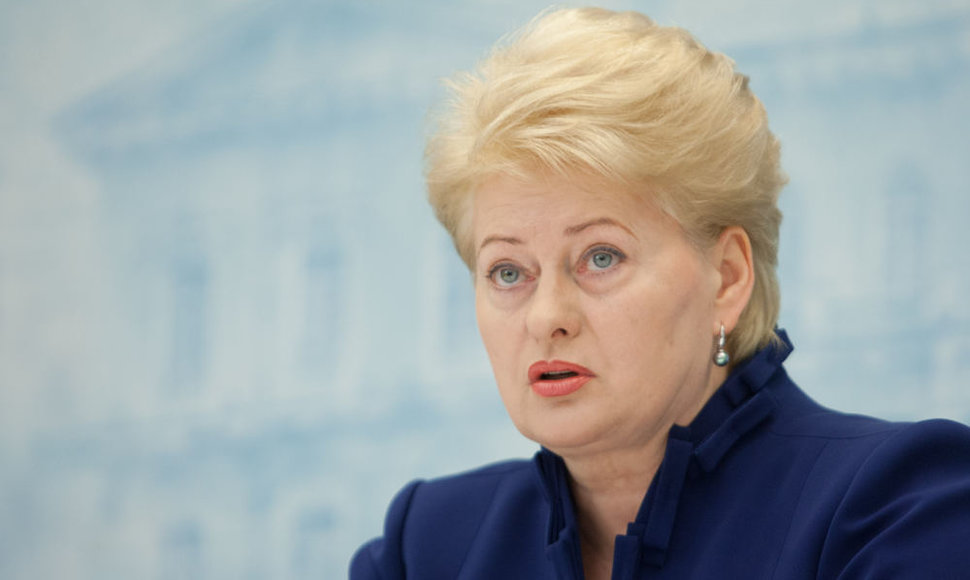"The government's strategy and willingness to join the euro zone in 2015 is a welcome step, it will require concentration, responsibility, and relevant decisions from all of Lithuania's political forces. I wish the government to be able to fulfill the task and this aspiration," Grybauskaitė told journalists after meeting with the visiting European Council President Herman Van Rompuy in Vilnius on Tuesday.
In her words, Lithuania should not be driven away by the turbulent situation in southern Europe, first of all in Italy, which is in a political deadlock following the recent parliamentary elections.
Grybauskaitė emphasized that the situation in individual countries was different, regardless of their membership in the euro zone.
"This has no direct effect upon the euro zone, as some countries even outside the euro zone feel better and have a better situation or, just as well, have problems even if they don't necessarily have the euro. Consequently, the euro and the euro zone are just instruments for responsible fiscal policies," the president said.
"Lithuania and the Baltic states have always said that responsible economic and fiscal policies benefited the countries, not somebody else. Therefore, Lithuania will benefit from such policies," Grybauskaitė told journalists.
She expressed certitude that "the current political uncertainty should not have a major effect upon Italy, unless it takes long."
Earlier this week, the Lithuanian government endorsed the euro adoption plan, which envisages establishment of coordination panels and task forces.
Some 17 of the EU's 27 countries currently have the euro. To join the euro zone, a member-state must meet the so-called Maastricht criteria on public finances deficit, inflation, and debt. Excessive inflation has so far been the main obstacle for Lithuania.
The debt crisis in the euro zone has pulled down public support to changing the currency; however, the administration says Lithuania will benefit from being in the euro zone, as Lithuania's key trade partners already have the euro. Furthermore, the euro would boost investors' confidence and allow cheaper borrowing on financial markets.












